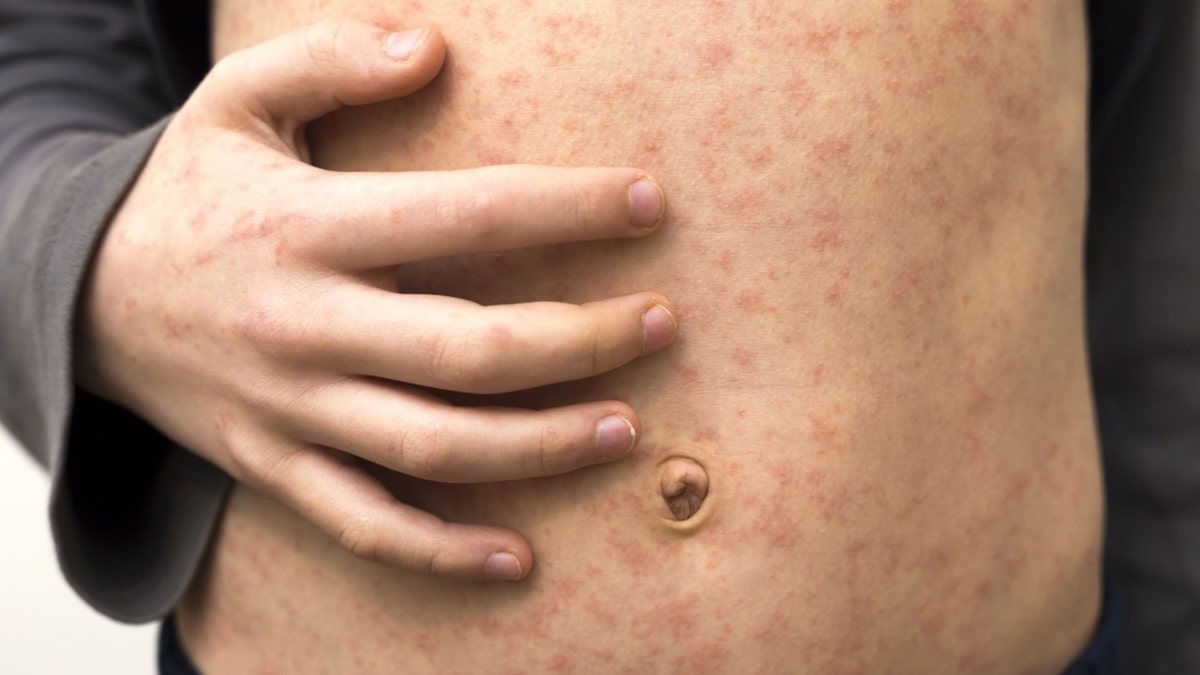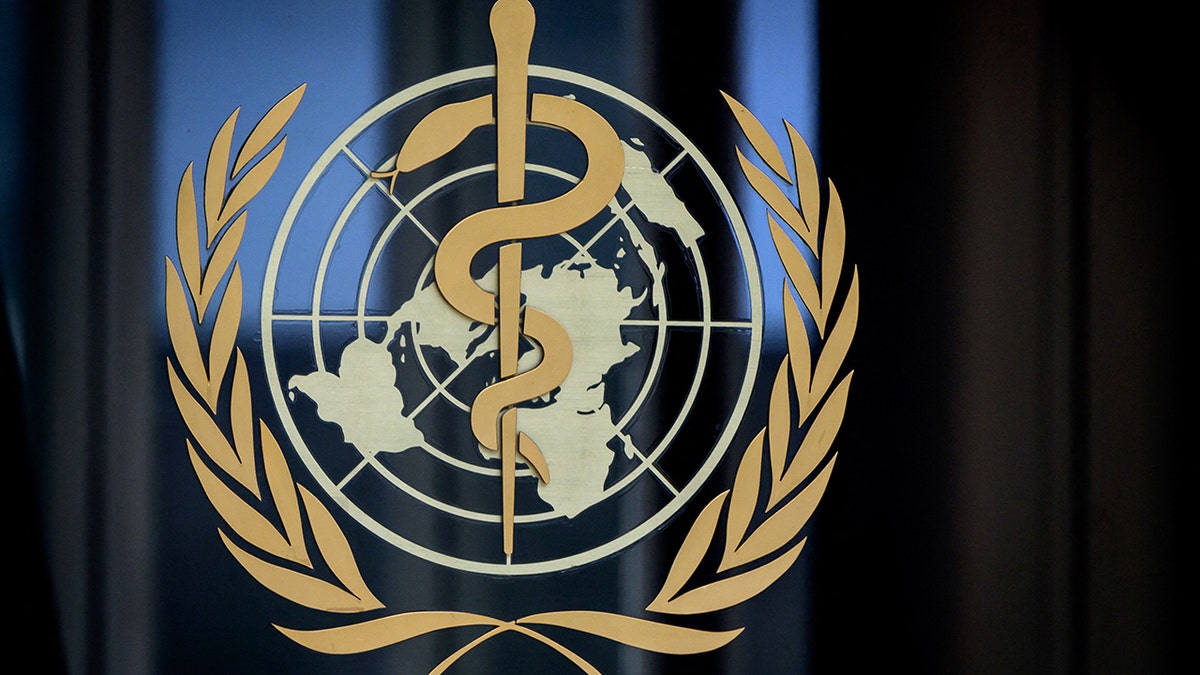CDC panel recommends vaccine for children under 5
Fox News medical contributor Dr. Marc Siegel weighs in as CDC Director Rochelle Walensky signed off on vaccines for young children Saturday on 'Fox News Live.'
Skepticism surrounding COVID vaccines remains abundant as uproar to overturn still-lingering mandates subsist across the U.S., but experts are pointing to a trend that is manifesting across multiple vaccine types worldwide.
A November study from the U.S. Centers for Disease Control and Prevention found a decline in the number of infants receiving measles vaccines, which is tied to the onset of the COVID-19 pandemic.
The study found a steady decline in the percentage of young children receiving measles immunizations, with 2021 numbers reaching their lowest point since 2008.
"One of the impacts of the COVID pandemic has resulted in a backsliding of the performance, the ability of immunization programs to reach the people who need to be vaccinated and the result of that is that we now have about 23 million children around the world who have not received the vaccines that they should have received and, of those 23 million children, about 17 million of them have never even gotten a single dose of vaccine through the routine immunization program," Kate O'Brien, leader of the World Health Organization's immunization program, said during an April Q&A for World Immunization Week.
CORONAVIRUS VACCINE SKEPTICISM AND HOW TO FIGHT IT, ACCORDING TO EXPERTS

A health professional administers a dose of a vaccine. (iStock)
"We're in a bit of a hole right now where there's been the loss of about a decade's worth of progress in immunization programs around the world," she added.
The problem surfaced in Zimbabwe earlier this year, where the country battled a devastating measles outbreak that the Ministry of Health said claimed over 700 lives.
In South Africa, National Institute of Communicable Diseases (NICD) raised concerns over 57 outbreaks in two provinces in a report last month.
In Europe, the war between Russia and Ukraine and low vaccination rates are believed to be behind a stark tripling of measles cases among Ukrainian citizens, according to data from the World Health Organization, and CDC data shows a small number of outbreaks in the U.S., including one which took Columbus, Ohio, by storm this year.
CDC: RECORD MEASLES OUTBREAK FUELED BY ANTI-VACCINATION PROPAGANDA

A patient inflicted with measles. (iStock)
Data from UNICEF, in partnership with the World Health Organization, found declines in vaccine percentages for other ailments as well, including diphtheria-tetanus-pertussis (DTP3), a "marker for immunization coverage within and across countries" which fell by 5 percentage points to 81 percent between 2019 and 2021 and reached its lowest level since 2008.
"Global vaccination continues to decline in 2021 with 25 million children missing out on lifesaving vaccines, 2 million more than in 2020, and 6 million more than in 2019," the agency wrote in July.
"The latest WHO/UNICEF estimates of national immunization coverage (WUENIC) also show that 112 countries experienced stagnant or declining DTP3 coverage since 2019 with 62 of those countries declining by at least 5 percentage points. As a result, 25 million children were un- or under-vaccinated in 2021…" the article continued.
The CDC brought declines in other global immunization coverage estimates into focus last month.
MORE THAN TWO-THIRDS OF AFRICAN NATIONS FALL SHORT OF 10% COVID VACCINATION GOAL: WHO

This photograph taken on March 5, 2021 shows a sign of the World Health Organization (WHO) at the entrance of their headquarters in Geneva amid the Covid-19 coronavirus outbreak. (FABRICE COFFRINI/AFP via Getty Images)
"Global coverage estimates were also lower in 2021 than in 2020 and 2019 for bacillus Calmette-Guérin vaccine (BCG) as well as for the completed series of Haemophilus influenzae type b vaccine (Hib), hepatitis B vaccine (HepB), polio vaccine (Pol), and rubella-containing vaccine (RCV)."
But problems with vaccine administration are worsening, even as the pandemic appears in the rearview mirror most Americans, leaving health experts to find a culprit behind the dilemma.
Many are pointing to supply chain issues brought on by the COVID-19 pandemic, particularly shortages in disadvantaged nations or communities worldwide.
In the realm of COVID-19 vaccines, UNICEF, echoing sentiments from the CDC, laid out the possible culprits for lackluster administration in some areas, including COVID-related "service and supply chain disruptions, resource diversion to response efforts, and containment measures that limited immunization service access and availability."
CLICK HERE TO GET THE FOX NEWS APP
Income emerged as another culprit, with high-income nations receiving more doses than those in lower-income nations.
"Only 16 percent of people in low-income countries have received a single vaccine dose – compared to 80 percent in high-income countries," the report said.
The agency also indicated other issues, including living in "fragile settings" and vaccine "misinformation" as possible factors.
Other ailments wreaked havoc on children in the U.S. this year, including an epidemic of influenza and RSV.
Fox News medical contributor Dr. Marc Siegel highlighted the topic of "vaccine fatigue" on "Fox & Friends" last month, pointing to an additional decrease in the number of Americans getting the flu vaccine this year.
"The flu vaccine has been around in some shape or form since the 1950s," he said, addressing criticism that COVID vaccines are new. "There's been 23,000 hospitalizations, according to CDC Director Walensky… so flu is zooming up to COVID levels and, again, the flu shot can help keep you out of the hospital."











































